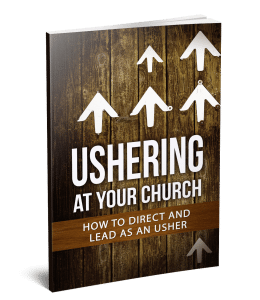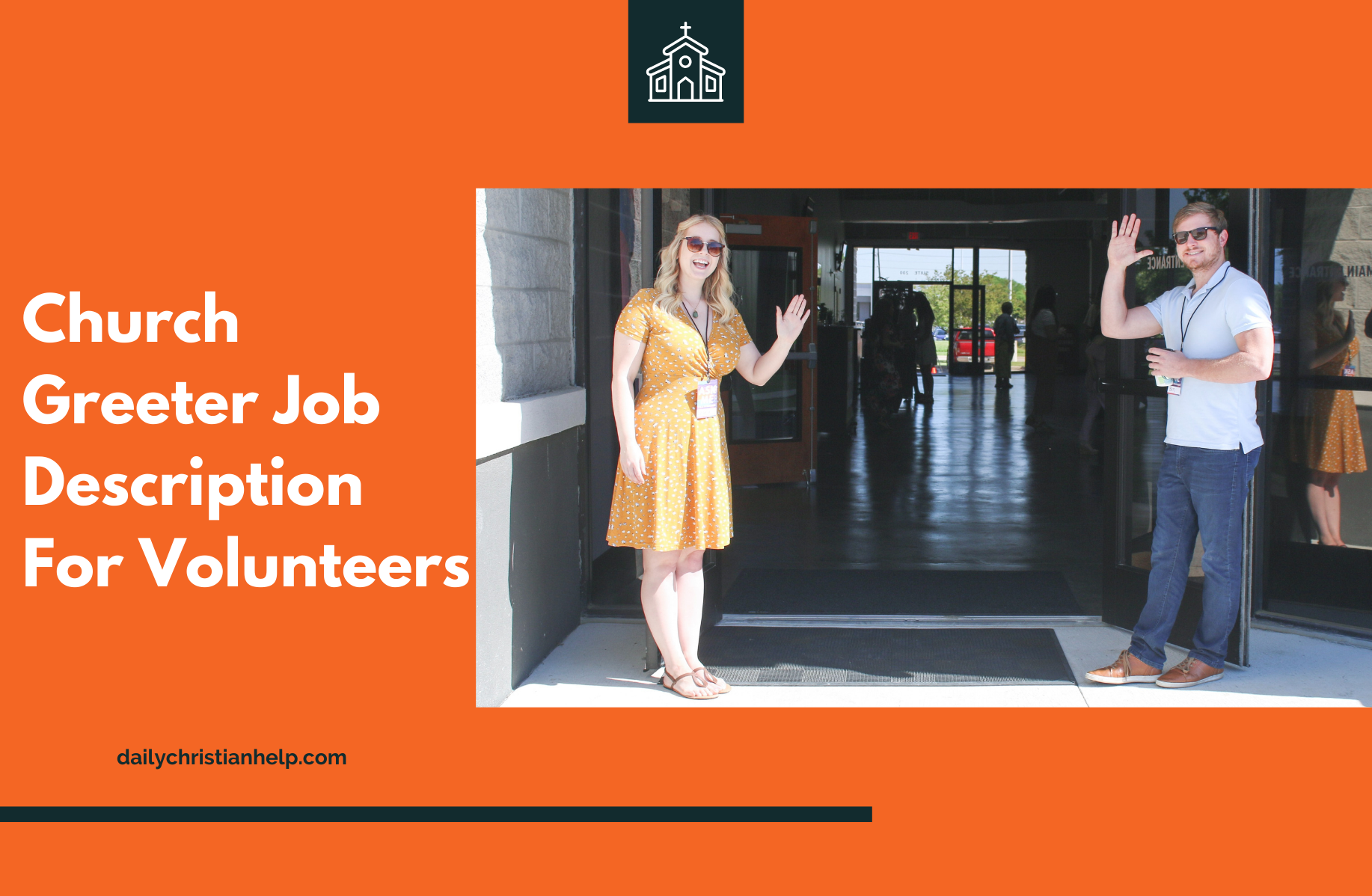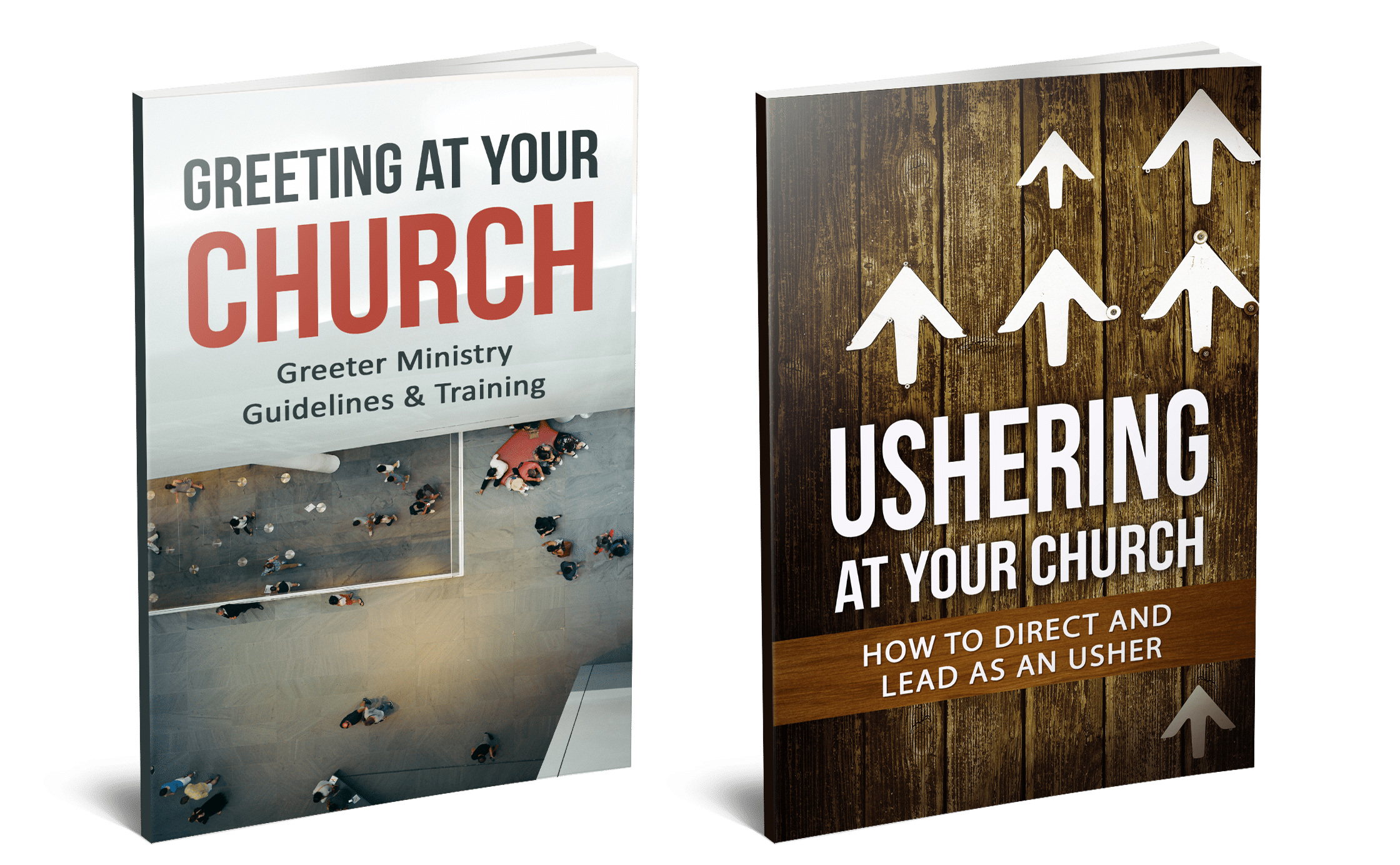Church Usher Duties can be summarized by four main objectives: preparation, anticipation, problem-solver, and servant leader. Below is a brief explanation of each objective.
Spiritual Preparation
A great usher is prepared on every level. Ushering will require you to think and act quickly so it is important to be ready, this includes spiritually. Ushering should never be viewed as an obligation it is a privilege! Connecting with God is a vital part of preparation.
Anticipation
Effective ushers who are helpful can anticipate and take action! They are attentive to what is going on and willing to meet needs as they arise.
The only wrong choice is not doing anything. Never assume “someone” else will take care of the need.
Problem Solving
In a church gathering, there will be pressure from time to time; maybe someone is upset, more chairs need to be set up, a person is approaching the stage, or something isn’t working the way it’s supposed to. As an usher, you are the leader and others view you like one, never pass the pressure off on those attending the service. You absorb the pressure. Help solve problems not create or make them bigger.
Servant Leadership
Good leaders are good learners. One of the primary church usher duties is to be supportive and encouraging by being service-minded.
Remove the frustration of coming up with training material for your usher team.
Click the button below to purchase the Church Usher Training Manual using the easy to use digital download and get immediate access to the training manual and free bonus!

Below is a small excerpt from the Church Usher Training Manual post.
Church Usher Duties
Arrive 25 minutes before your scheduled service and report to Lead Usher.
During this time you will be informed of any special details or events taking place within the service. It is also a great time to familiarize yourself with the bulletin so that you are prepared to answer any questions people may have.
Assure the sanctuary is in order. This includes:
- Filling the pockets with offering envelopes, visitor cards, and other specified resources.
- Straighten rows/aisles and assure the chairs are properly aligned & secured.
- Pick up and throw away any trash that was left from previous services.
Pray as a team before the service begins.
This prayer may be led by the team leader but if another usher would like to pray as well, then, by all means, do so.
Help people find a seat.
This may seem like an easy task, but there is a skill required. The skill requires helping people, especially new people, feel welcomed and comfortable.
In a sanctuary, people can easily feel overwhelmed or intimidated. Think about how you’ve felt when you’ve walked into a restaurant you’ve never been to. Should I seat myself or do I wait to be seated? Who should I ask if I have a question? Who do I talk to if I have special needs?
As an usher, your job is to anticipate the needs of people with confidence. Don’t leave people guessing. Assure them that you can and will help them.
When you are seating someone, don’t make them be the one to have to say “excuse me” to those already seated, as an usher you are the one who is there to help seat the people by speaking up for them.
The Bottom Line is you are there to serve even in the small ways.
A couple of seating guidelines:
- When people enter after the sermon has begun directly assist them in finding a seat in the back rows of the auditorium.
- If a person leaves and enters the sanctuary more than once during the sermon, ask them to find their seats and remain.
Collect the offering.
The offering is an act of faith and an expression of worship. It is an opportunity for people to display their love, trust, and obedience to God.
The following outline will help ensure safe and practical accountability.
- There must always be at least three, unrelated ushers present when collecting and transporting the offering.
- In the case of collecting an offering with bags/buckets, when an usher completes the collection of the offering from their section, they will join the ushers in the adjacent section so they can exit together. An usher should never be alone with any amount of the offering. After exiting the sanctuary the ushers will join each other at a designated location.
- Ushers collecting/transporting the offering will be on a rotating schedule.
Be responsive to the needs of our Pastor/Speaker and the Church Leadership.
Assist with the flow of traffic during altar calls, times of prayer, etc.
Move with a sense of urgency to the altar, take control, and help direct people to Altar Workers/Prayer Team Members who are available for prayer.
Address & Resolve Distractions
Examples:
- Small children playing loudly with a set of keys
- Babies Crying
- People leaving and entering the service
- Someone approaching the stage without being asked
Each distraction that arises can be resolved in a calm but firm manner by a confident usher who understands that distractions not only hinder the individual but those around him/her.
Prop open sanctuary doors when the congregation is dismissed.
The church usher duties are important to the worship service because if a person has had a less than positive experience finding their way into the sanctuary, an usher can play a significant role in turning that person’s experience around.
A church should honor the weekend services as a holy event where God’s people worship, experience His presence, share His Word, and surrender to His leading. The usher plays a vital role in this by helping to maintain order and meeting the needs of the congregation and Pastor.
Get the manual and share it with your team. This church usher training manual provides everything your usher team needs to know to be effective and meet expectations. Strengthen your usher team and serve your church better!



